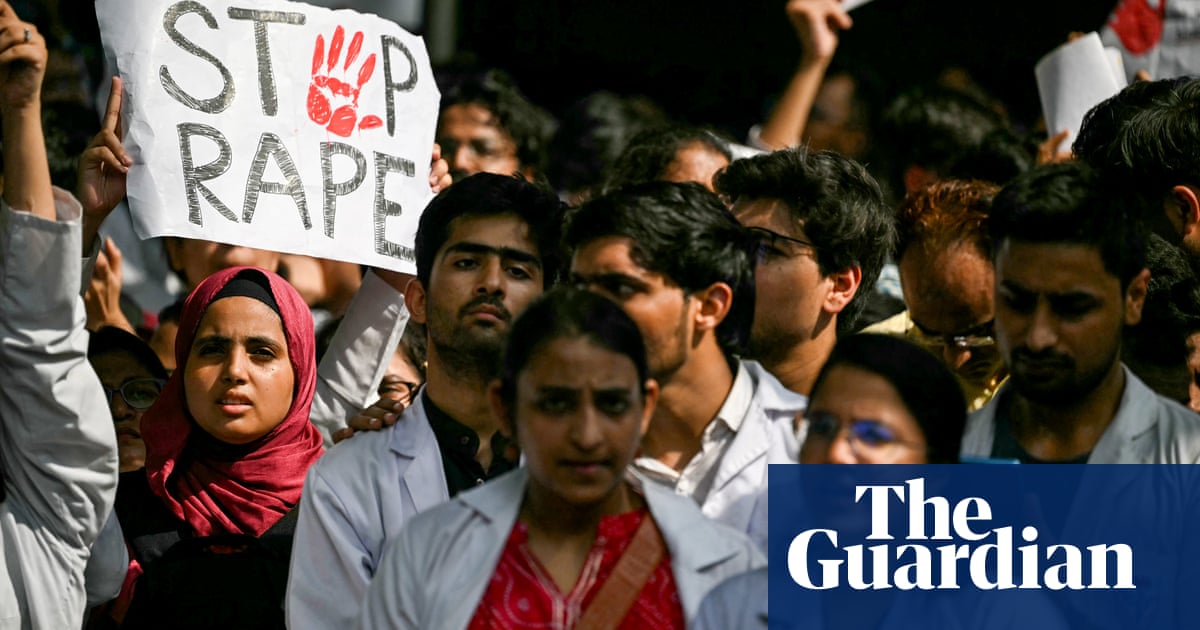All hospital services in India except for emergency care will shut down on Saturday as doctors escalate their protest over the rape and murder of a colleague by calling for a nationwide strike.
A strike that doctors started on Monday was more limited, affecting only government hospitals and elective surgeries. The one on Saturday, called by the Indian Medical Association, will cause massive disruption for 24 hours. All outpatient services and treatment in government and private hospitals will be cancelled.
Dr Johnrose Jayalal, the president of the association, said public anger was so high that the association felt compelled to intensify the strike – thought to be the biggest in a decade – to force the government to act. “Look, 50% of doctors are women, 90% of nursing staff are women. We want the government to take responsibility for ensuring their safety by declaring hospitals as protection zones [with security measures], just like airports and the courts,” he said.
Jayalal added that doctors were deeply concerned over the safety of female doctors and rising levels of violence generally against all doctors by patients’ families. There have been cases of doctors being beaten up when a patient has died.
A 31-year-old doctor was raped and murdered last week in a seminar room at RG Kar hospital in Kolkata, West Bengal, when she went to rest at night during a long shift. A man who worked informally at the hospital has been arrested and charged with the crime.
Just as the strike is about the Kolkata murder but also encompasses a wider demand for safety for all doctors, so, too, are the protests sweeping West Bengal and other towns an outcry about women’s safety across India. As one protester put it, “this is both about the Kolkata doctor who was brutalised and every woman who has faced sexual violence or harassment in the country”.
Adding to the anger, it was reported on Thursday that on 8 August police in Uttarakhand discovered the body of a young nurse who had been raped and murdered nine days earlier while walking home from work.
The sense of outrage among women in India about the Kolkata murder has been compounded by the insensitive response of prominent people, suggesting little has changed since the 2012 gang-rape of a student in a moving bus in Delhi that shook the country.
The RG Kar medical college principal, Dr Sandip Ghosh, far from expressing sorrow over the doctor’s death, asked why she had been resting in the seminar room alone at night. After resigning, he was appointed to a post in another medical college.
Politicians began a blame game. When the West Bengal chief minister, Mamata Banerjee, was accused by rival parties of laxity on women’s safety, she asked: “What about sexual violence in your state?”

